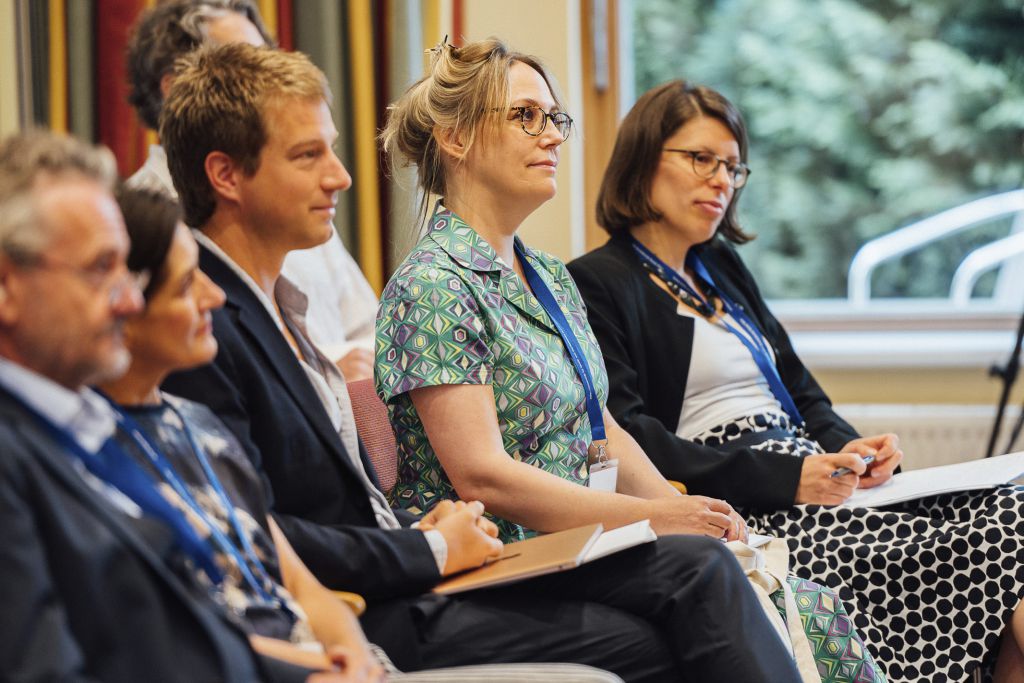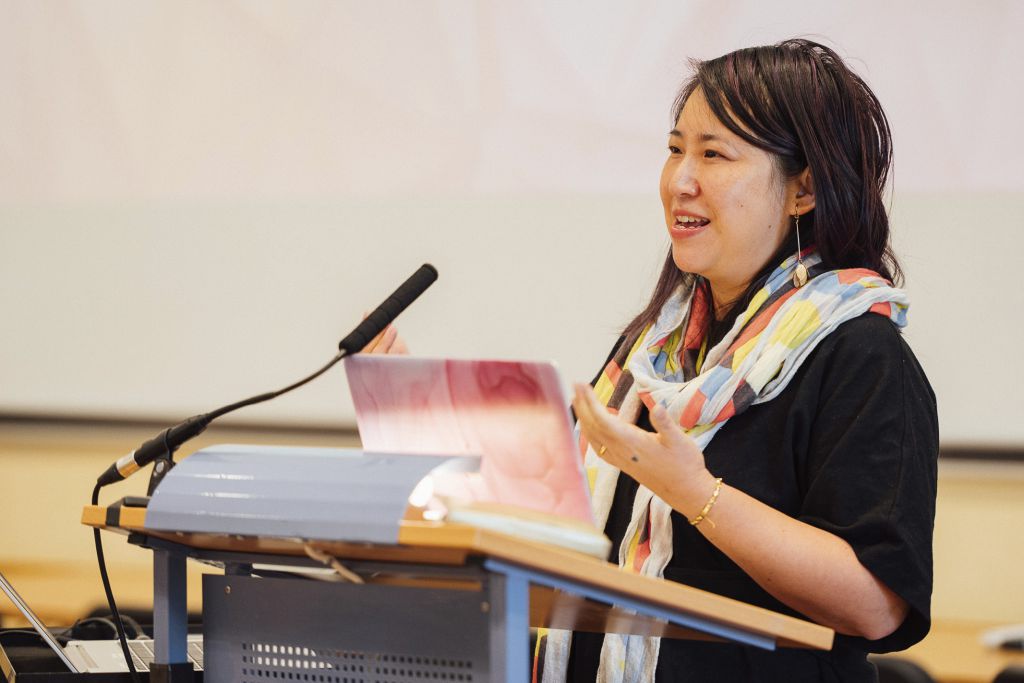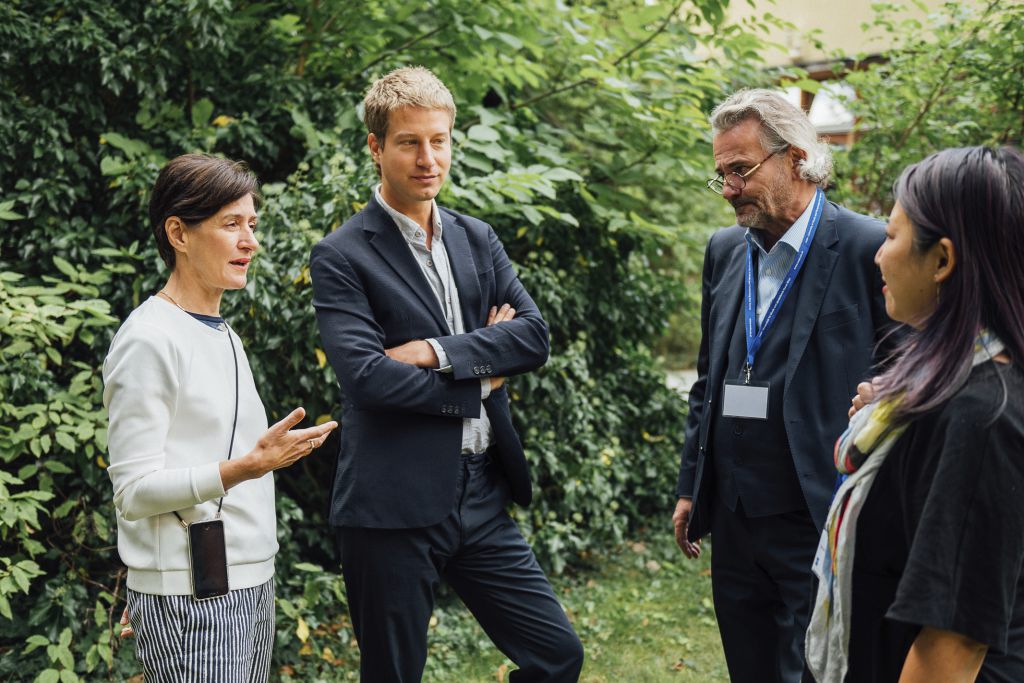A Report from the 2022 isaScience Conference
A violin suspended in mid-air next to an indoor swimming pool, another producing delicate sounds as if by itself: it was with such unusual impressions that HannaH Walter’s lecture-performance “becoming vyborg. becoming with technology” ushered in the second day of isaScience 2022, aptly fusing essential aspects of this interdisciplinary, hybrid humanities conference with the theme of “Un/Learning: Norms and Routines in Cultural Practices” in Reichenau an der Rax.

Walter invited the participants to leave their passive role as spectators and become active, making them an integral part of the performance by turning them into smartphone-wielding camerapersons for the Zoom audience. The effect was mosaic-like, rendering this lecture-performance digitally accessible from many different perspectives. In line with the isa motto “Always Anew,” the participants in isaScience 2022 explored a variety of topics from the perspective of “Un/Learning”: gender justice, decolonisation, institutional critique, transculturality, and disability studies were focal points that shaped this international conference under the leadership of its new academic board consisting of Andrea Glauser, Marko Kölbl, and Stephanie Probst. The summer ambience of the Semmering region allowed for intensive exchange, both during the breaks and in informal get-togethers beyond the ambitious conference programme.

The fact that what “Un/Learning” ultimately embodies is not a defined field of research by individuals but necessarily “all our research” was formulated by Shzr Ee Tan in her extremely self-reflective opening keynote. Entitled “Decolonising Sound and Music in Post-Woke Regimes: Bad Faith, Wilful Misunderstandings, ‘Western’ Problems, Brave Conversations, Personal Boundaries,” Tan explored numerous moments in her research and teaching career in which she had found herself confronted with issues of (de)coloniality and its attendant norms and stereotypes. Her penetrating questioning of her own positionality and role in the gatekeeping of knowledge thus made for a self-critical conference opening.

Danielle Brown’s keynote lecture, “The Lies We Tell: Unlearning False Narratives,” likewise addressed issues of academic representation and accessibility, albeit from an outside perspective. In 2014, she left academia to found My People Tell Stories, an enterprise that continues her quest to decolonise musicology. Referring to Brown’s talk, Tanya Titchkosky’s closing keynote “Disability & Disability Studies: Encountering Artistic Embodiment Anew” explored the framing of accessibility beyond mere inclusion. What happens once hurdles are overcome, and to what exactly is access granted when previously excluded groups are included? Pointedly, she asked, “When we are in, what are we in for?” Drawing on her own research on disability, Titchkosky discussed the importance of (bodily) norms especially when intertwined with artistic practice. She cited, for instance, the coaching of blind actors by sighted trainers, which reproduces stereotypical gestures.
In many ways, the programme of isaScience made clear that content and form cannot be separated in the examination of the “Un/Learning” of norms and routines and that such a topic should therefore go hand in hand with breaking up traditional presentation formats. Via a selection process that was conducted anonymously for the first time, a total of 30 contributions were selected from the large number of outstanding international as well as mdw-based submissions. The academic panels and five lecture-performances proved representative of the disciplinary and methodological range of the participants, who joined the conference from three continents both onsite and online. And to wrap things up, Rod Michalko, Devon Healey, and Nate Bitton appeared remotely from England and Canada for their online lecture-performance entitled “Sighted Rhythm and Blind Perception”, which humorously questioned the notion of “normality” and expectations of blind and visually impaired people. Combining Michalko’s reading of a memoiristic text from the perspective of his guide dog Smokie with Healey and Bitton’s live radio play scene, this trio brought isaScience 2022 to a close that was as light-hearted as it was impressive.

Watch two of the abovementioned keynotes at the mdwRepository

